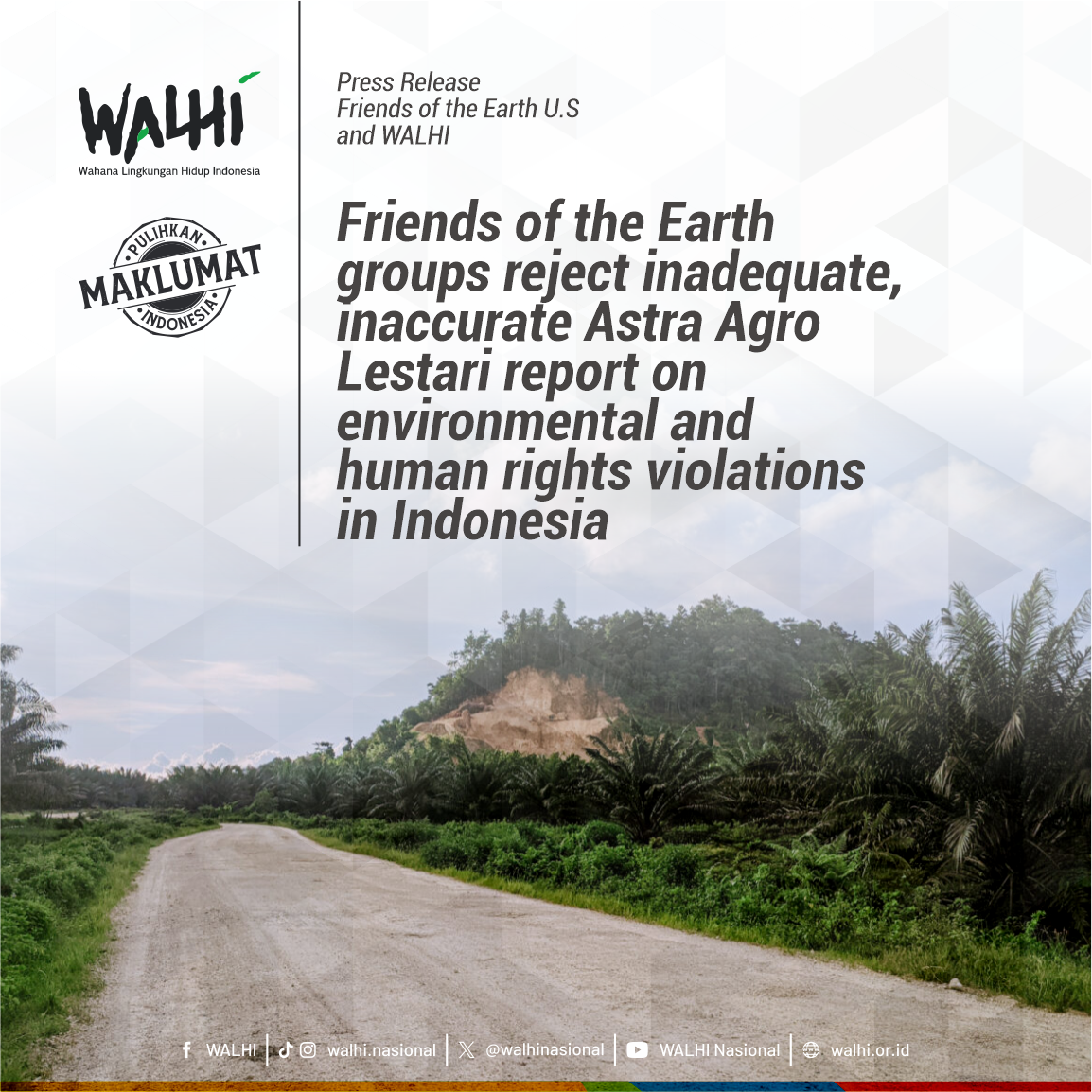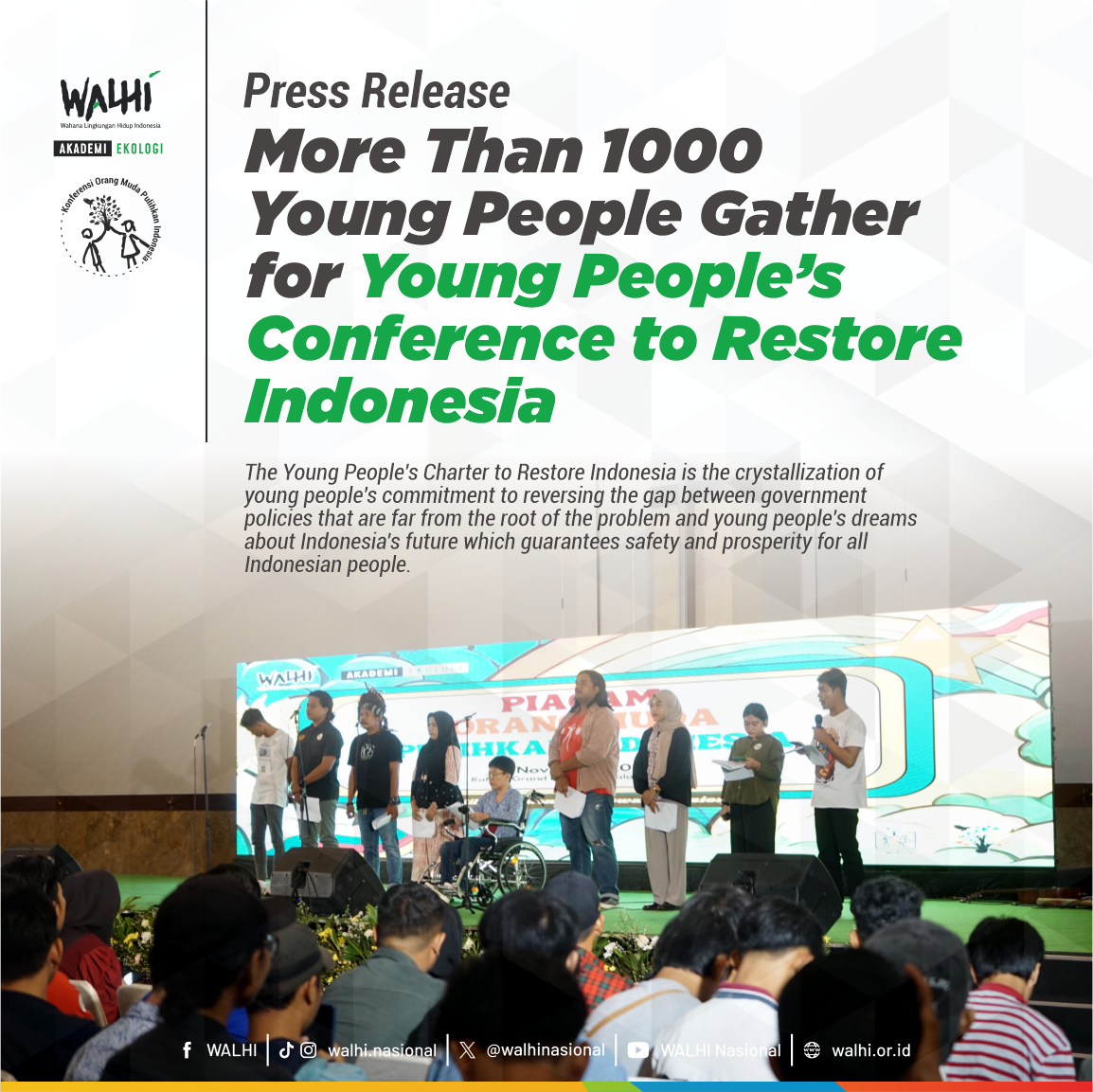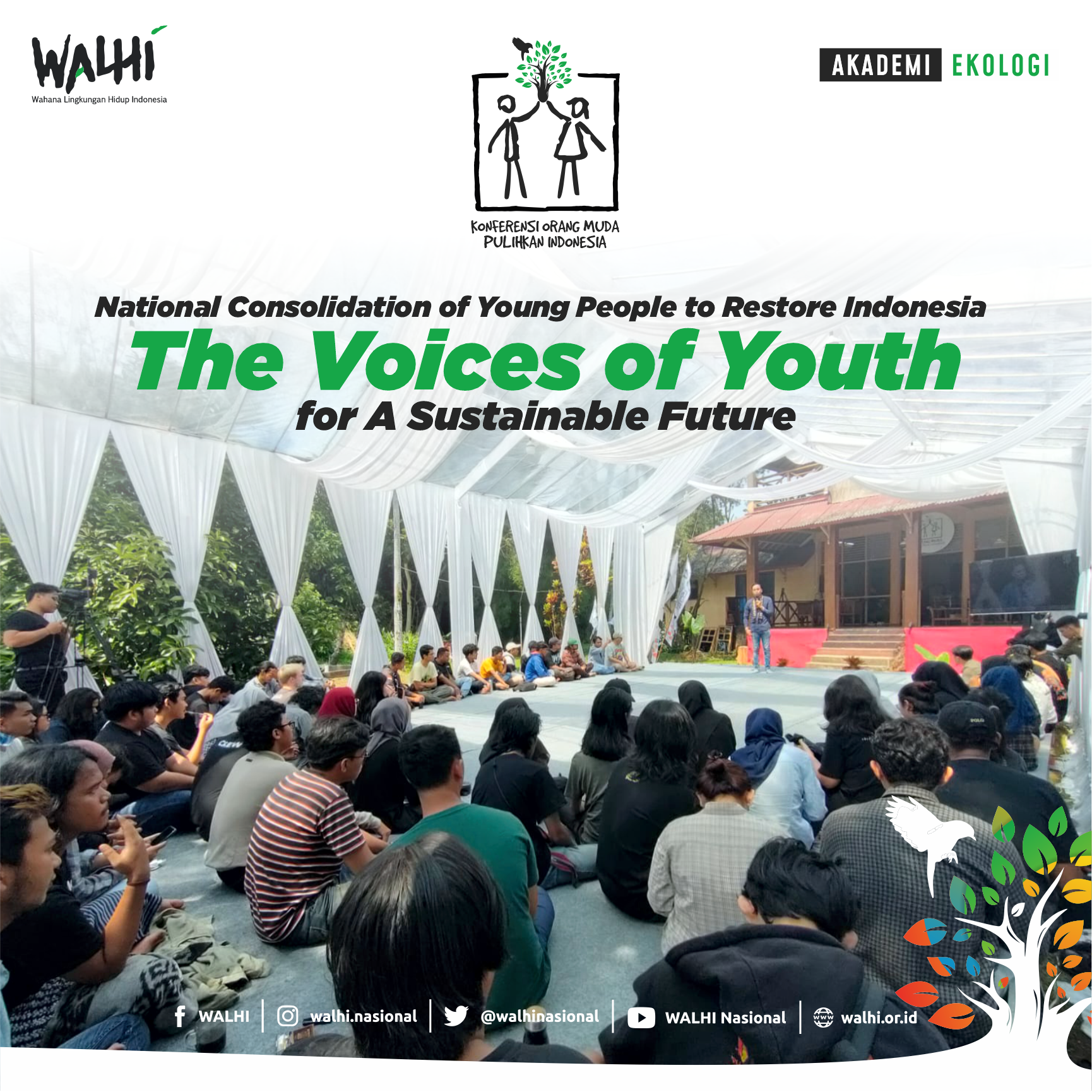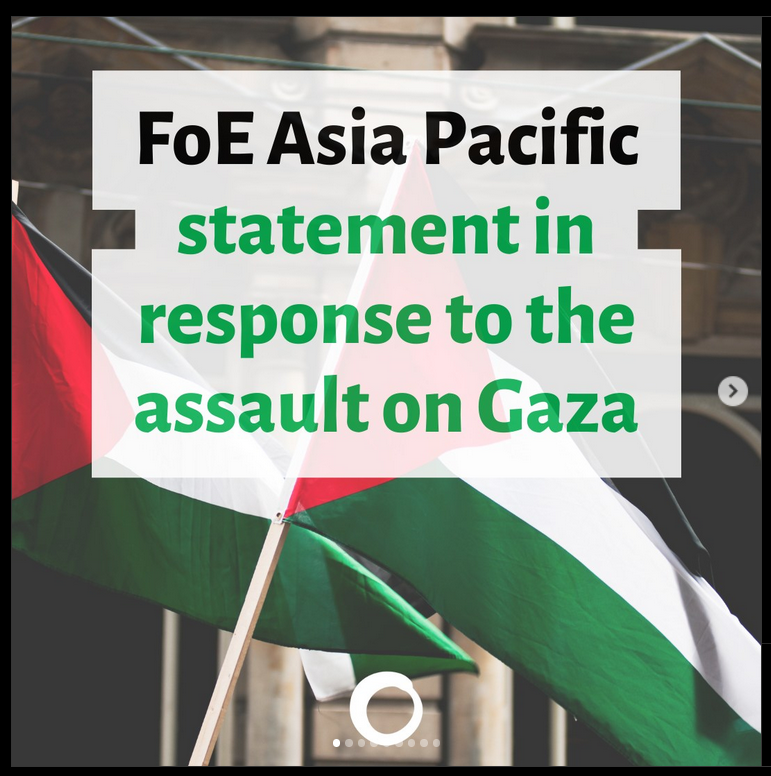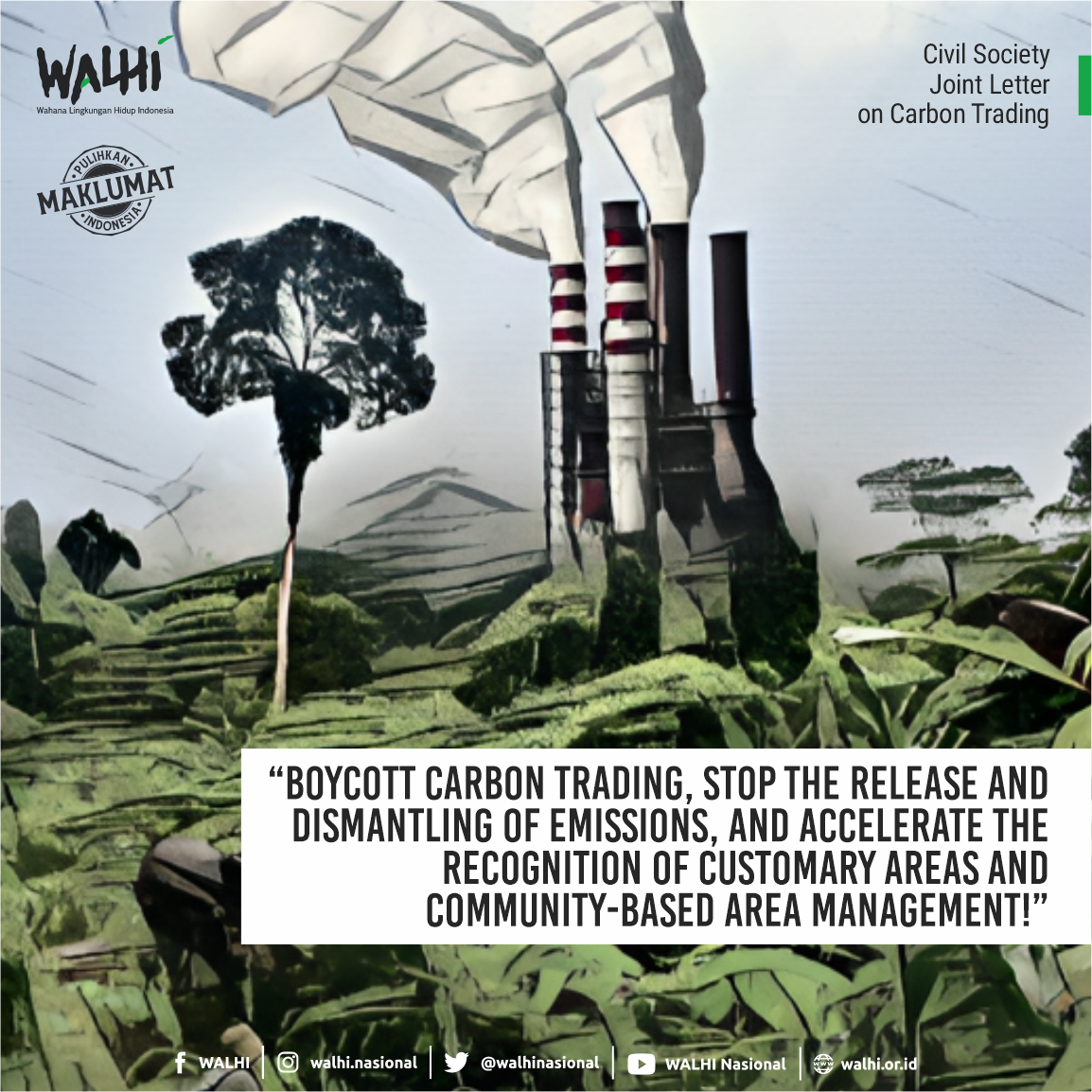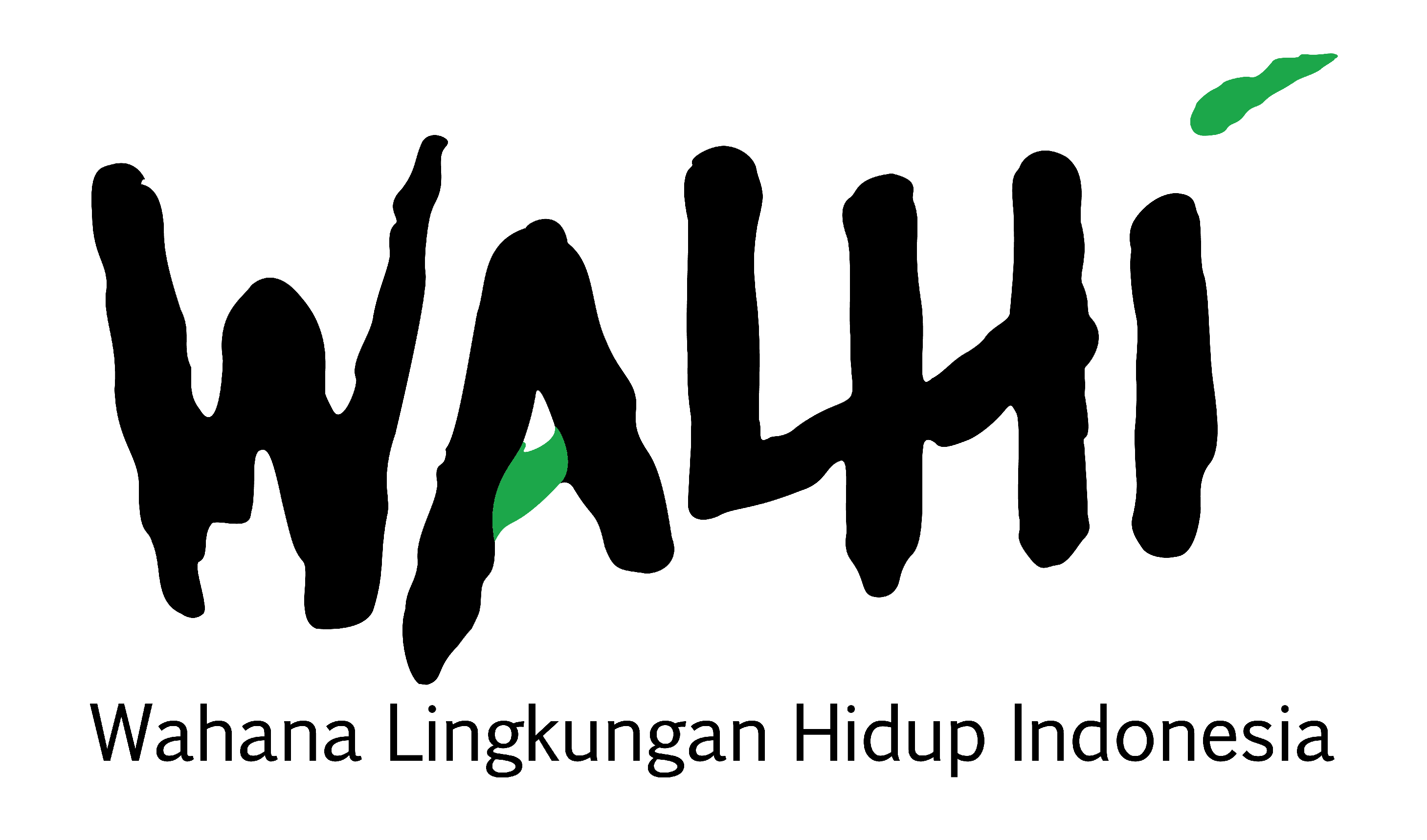- Background
The Indonesian Forum for the Environment (WALHI) is the largest environmental movement organization in Indonesia, with 487 members of non-governmental organizations and nature lovers communities, and 203 individual members spread across 28 provinces in Indonesia. From 1980 until now, WALHI has actively encouraged efforts to save and restore Indonesia's environment. WALHI continues to push for the recognition of environmental rights and the protection and fulfillment of human rights as a form of state responsibility for fulfilling people's sources of life.WALHI realizes that this struggle faces tough challenges day by day, especially from the enhancement of solid domination and penetration of the global capitalist regime through free market agendas and the hegemony of new liberalism (neo-liberalism) and stronger national support and political partisanship to the interests of industrialized foreign countries or the global economic regime. The global capitalist regime brings people, environment and the sources of people's lives, and even the earth as the victim of capital accumulation. The endless exploitation and exploration of natural resources, which lead to the environmental crisis, have affected the order of economic, social, and cultural life and ultimately increased threats to the people’s vulnerability, safety, and lives, both in rural and urban areas.In the middle of an intense struggle to save the environment and people's livelihoods, a strong and broad social movement is needed to fight for economic, social, and ecological justice for our present and future generations. WALHI ensures itself to be a significant part of this movement.
Vision and Mission of the Organization
II.1. Vision
Creating a fair and democratic social, economic and political order that can guarantee people's rights to sources of life and a healthy and sustainable environment.
II.2. Mission
- Developing the strength and resilience potential of the people
- Restore the state's mandate to uphold and protect people's sovereignty
- Deconstructing an oppressive and exploitative global capitalist economic order toward a community economics
- Building an alternative to a new world economic order
- Urging policies for the management of people's sources of life in a just and sustainable manner
III. Values and Principles
III.1. Organizational Core Values
- Honoring Human Rights; Awareness, attitudes, and actions that prioritize and highly value human rights.
- Democratic, Where the active involvement of constituents (the people) occurs in a collective decision-making process and provides equal rights, political equality, and people's participation to control the results of these decisions.
- Gender equity; Everyone has the right to a decent life and environment, regardless of gender, religion, and social status. Treat men and women fairly regarding roles and responsibilities due to social conditions, community culture, and state political policies.
- Ecological justice; Emphasizes the importance of community access to the benefits of using natural resources, and justice that emphasizes the importance of recognizing the existence of various community's ways of managing natural resources.
- Justice between generations; All present and future generations shall have the right to a good quality and healthy environment.
- Social fellowship; Building togetherness and high solidarity and engaging in social work among people. Everyone has the same civil, political, economic, social, and cultural rights.
- Anti-violence; Awareness, attitudes, and actions that reject and oppose the practice of violence committed by individuals, groups, capital, and the state.
- Diversity; Recognizing the certainty of human equality in diversity or pluralism.
III.2. Organizational Principles
- Transparency; Delivering actual information relating to the organization's management, programs, and results of financial audits to related parties, whether requested or not.
- Independent; All parties are expected to support the Independent political and economical of the community.
- Professional; Maintaining public trust in efforts to protect and save the environment, all organizational activities shall be appropriate with the interests of the people (victims and their families), and all forms of organizational activities can be held accountable. All parties should work professionally, wholeheartedly, effectively, and systematically and continue to develop the spirit of togetherness.
- Exemplary; Leading the people through actions or good deeds that can inspire and be a role model.
- Voluntary; Embodied solely for the empowerment and independence of the people and networks, shall not make rewards/interests and position/power on purpose.

